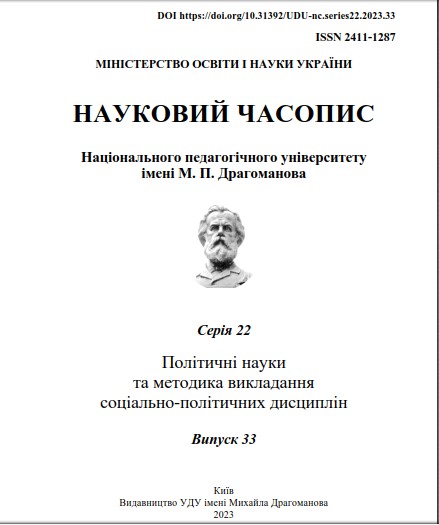Reform of the UN Security Council: Chronology and Perspectives
DOI:
https://doi.org/10.31392/UDU-nc.series22.2023.33.04Keywords:
Рада Безпеки, ООН, реформа Ради Безпеки ООН, РФ, архітектура світової безпеки, постійні члени, міжнародна безпека, право вето.Abstract
The article is dedicated to highlighting the issue of reforming the UN Security Council and seeking new
effective instruments for security stability, which has gained renewed relevance given the onset of a period of profound geopolitical turbulence.
The research and analysis of provisions, analytical reports, documents (the Open-ended Working Group
for the consideration of all aspects related to the expansion of the membership of the Security Council an other matters concerning the Security Council; intergovernmental negotiations; debates on Security Council reform; programs of the UN Secretaries-General on Security Council reform (Boutros Boutros-Ghali; Kofi Annan), proposed paths and models by UN member countries), as well as international agreements, legislative
acts, taking into account the current geopolitical situation resulting from the violation of the UN Charter by a permanent member of the UN Security Council, the Russian Federation, and all possible norms of international law, which triggered a chain reaction of disrupting the architecture of world security, allowed the author to conclude that the prospects for the reform of the UN Security Council today are rather elusive.
The author also notes that it is crucial to conduct scientific research and develop new conceptual
models that could address such an important issue as the formation of a new global effective system ensuring global security balance among world actors and responding to the challenges and threats of the new world order.

